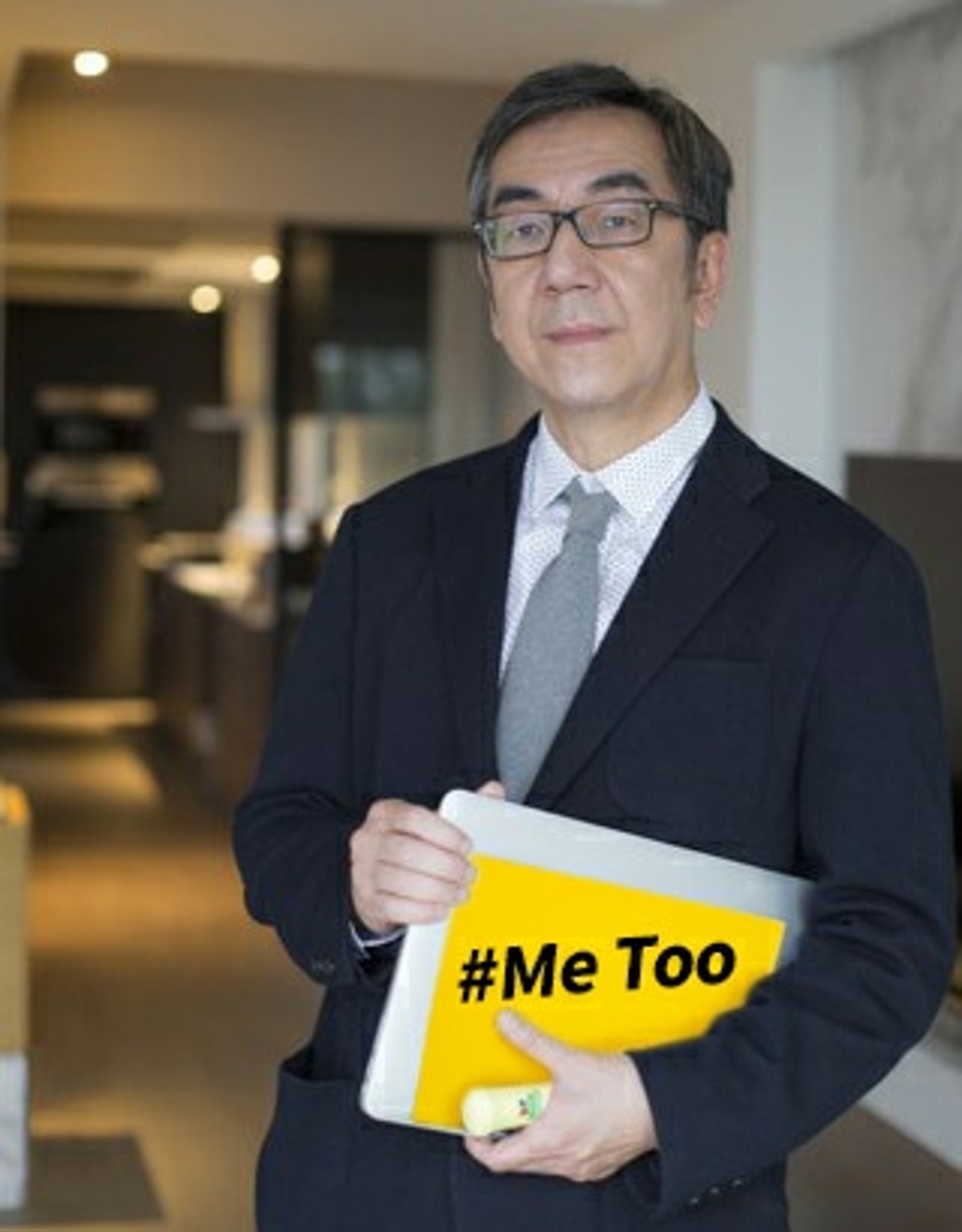
Backlash in Hong Kong against the ‘Me Too’ campaign
There is widespread anxiety among many men that they, too, could be open to accusations over past inappropriate behaviour of which they may or may not be guilty
The American-inspired “Me Too” movement encouraging women to speak out against sexual harassment has barely started in Hong Kong and it’s already suffering a backlash.
When star hurdler Vera Lui Lai-yiu first alleged on Facebook that she was molested by her former coach a decade ago, she received widespread sympathy and support. Now, more sceptical voices are emerging.
Leading the charge is none other than Chip Tsao, arguably the city’s most widely read pundit.
Posting a photo of himself holding up a “Me Too” sign, he claims he was sexually harassed by a female teacher in kindergarten because she once touched his face without his consent. Predictably, his series of posts have triggered an internet storm.
Writing in his typical biting language, Tsao says he is a worshipper of Western culture and so must now follow its latest fashion trend, which is to declare himself a victim of sexual assault.
He even names the female teacher as “Wong Wing-yee”, though adding the Chinese name is so common it may identify many other women.
“Grandma Wing-yee, where are you now?” he writes. “You abused your professional power to abuse the body of a young child, who was me. Thanks to the new age of Facebook, all that’s needed is to hold up a selfie with a sign and instantly turn many people into Harvey Weinstein or Kevin Spacey.”
Facebook and selfies, he says, are now as powerful as the law. A series of sexual assault allegations against the two Hollywood heavyweights started the “Me Too” campaign, which has turned into a global phenomenon.
In another Facebook post, Tsao proposes a hypothetical situation in which a mainland student accuses University of Hong Kong law lecturer and Occupy movement co-founder Benny Tai Yiu-ting of sexual harassment. Tsao then asks whether people would believe her.
Tsao, who is well-known for his pro-Western, anti-mainland views, presumably means to say that most Hong Kong people would not believe a mainlander, so by extension, perhaps you shouldn’t trust other accusers in similar circumstances as well.
Amid sharply divided reactions to Tsao, one stands out for me. It says behind all the forced humour and sarcasm in Tsao’s Facebook posts is the widespread anxiety among many men that they, too, could be open to accusations over past inappropriate behaviour of which they may or may not be guilty.
That sounds just about right.


